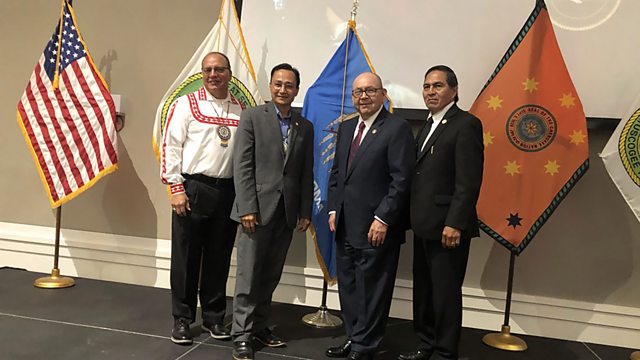Tribal justice
The legal battle that could transform life for Native Americans in the US.
The past few years have been the most politically turbulent for the State of Oklahoma and its Native American, or Indian, population in over a century. A Supreme Court ruling, McGirt v Oklahoma, in July 2020, reaffirmed treaties that have been in place since the early 19th Century. These treaties decreed much of eastern Oklahoma as reservation land, still belonging to the Native American communities who were forcibly moved there in the 19th Century. More than 1.8 million people live on that land, including a huge chunk of the 400,000 people who live in Tulsa, Oklahoma’s second-largest city.
However an inevitable legal backlash followed the McGirt decision. In June 2022 another US Supreme Court ruling named Castro-Huerta v Oklahoma narrowed the scope of the more sweeping McGirt decision. But arguments over how to interpret these judgements continue to swirl. From Native Americans refusing to pay taxes to a state that they believe no longer holds sway over them, to Indian and Oklahoma state authorities competing over who should prosecute certain criminal cases.
Allison Herrera, Indigenous Affairs reporter for KOSU Radio in Oklahoma, speaks to individuals at the highest levels of State and Indian government as well as everyday citizens to explore this unique moment.
(Photo: (L-R) Choctaw Nation Chief Gary Batton, Principal Chief Chuck Hoskin Jr. of the Cherokee Nation, Governor Bill Anoatubby of the Chickasaw Nation and Chief David Hill of the Muscogee Nation)
Last on
More episodes
Previous
Broadcasts
- Tue 29 Nov 2022 02:32GMTΒι¶ΉΤΌΕΔ World Service
- Tue 29 Nov 2022 09:32GMTΒι¶ΉΤΌΕΔ World Service
- Tue 29 Nov 2022 20:06GMTΒι¶ΉΤΌΕΔ World Service Americas and the Caribbean, UK DAB/Freeview, Europe and the Middle East & Online only
- Tue 29 Nov 2022 21:06GMTΒι¶ΉΤΌΕΔ World Service except Online, Americas and the Caribbean, Europe and the Middle East & UK DAB/Freeview
- Sun 4 Dec 2022 05:32GMTΒι¶ΉΤΌΕΔ World Service except Australasia

